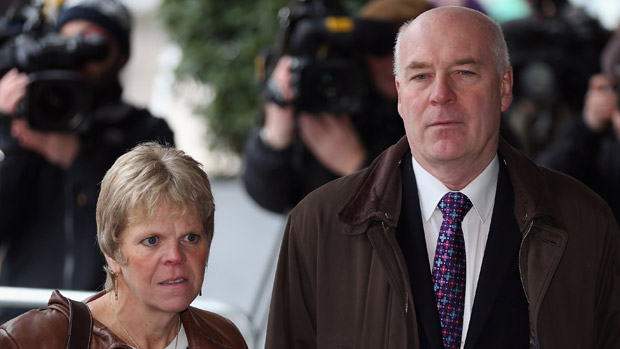Ipso: is new newspaper regulator a 'sham'?
Victims of press intrusion unhappy with the new Independent Press Standards Organisation

A free daily email with the biggest news stories of the day – and the best features from TheWeek.com
You are now subscribed
Your newsletter sign-up was successful
The Press Complaints Commission, the UK's newspaper and magazines regulator, is today replaced by the new Independent Press Standards Organisation (Ipso). It will oversee editorial standards for the majority of national and regional newspapers and magazines.
The replacement comes after months of wrangling between newspapers and the government over how the industry should be regulated in the wake of the Leveson Inquiry, which exposed the extent of the phone hacking scandal and other press misconduct. But is Ipso enough to placate the newspaper industry's critics?
What is Ipso?
The Week
Escape your echo chamber. Get the facts behind the news, plus analysis from multiple perspectives.

Sign up for The Week's Free Newsletters
From our morning news briefing to a weekly Good News Newsletter, get the best of The Week delivered directly to your inbox.
From our morning news briefing to a weekly Good News Newsletter, get the best of The Week delivered directly to your inbox.
It is a new body that will regulate the newspaper and magazine industry, replacing the Press Complaints Commission (PCC), which was discredited during the Leveson Inquiry. Essentially, Ipso will help members of the public seek redress over breaches of its Editors' Code of Practice, which deals with issues such as accuracy, invasion of privacy, intrusion into grief or shock and harassment. As well as pledging to hold publications to account for their actions, it also promises to maintain freedom of expression for the press.
What powers does it have?
Unlike the PCC, Ipso will have powers to investigate and charge fines of up to £1m for serious and systemic wrongdoing, says the Daily Mail. It can also "require" newspapers to have their own effective complaints-handling procedures and publish prominent corrections.
Who is leading the new organisation?
A free daily email with the biggest news stories of the day – and the best features from TheWeek.com
The chairman is Sir Alan Moses, a former Lord Justice of Appeal. The board of directors includes seven independent members, who have no connections with the newspaper and magazine industry, such as Richard Reed, co-founder of Innocent smoothies, as well as five members representing the industry, including television news journalist Martyn Lewis. A separate complaints committee has been set up with the same weighting, of seven independent members and five industry members, including former Radio Times editor Gill Hudson and deputy chair of the NHS Litigation Authority Nina Wrightson.
Have all the newspapers signed up?
No. The landscape of press regulation has become even more complicated for the public, with some newspapers refusing to sign up to the new regulator and others vowing to regulate themselves. Publishers of The Guardian, The Independent and Financial Times have not signed up for Ipso.
Does Ipso meet Leveson's recommendations?
Leveson recommended that the press industry create its own regulator backed by legislation to make sure it meets certain standards of independence and effectiveness. As a result, the three main political parties established a Royal Charter for press regulation with plans to introduce a "recognition panel" to independently verify and keep an eye on any new regulator. However, the recognition system will be voluntary and many of the UK's newspapers are resisting the idea of allowing Ipso to be regulated under the charter. The organisations establishing Ipso claim it delivers "all the key elements" Leveson called for in his report. But critics say it is not independent of the newspaper industry and is too similar to the PCC, with the same office and many of the same staff. The Guardian says "industry tentacles" reach into its funding, control and constitutional arrangements.
Are hacking victims satisfied?
No, several victims of press intrusion, including the parents of Madeleine McCann and Milly Dowler, hit out at the new body today. In a joint letter in The Guardian, they described it as a "sham" regulator – a "mark II" version of the PCC that "lacks the powers or independence to be fair and effective". Campaign group Hacked Off, which includes many victims of press intrustion, also described Ipso as a "sub-standard regulator" that fell short of the principles set down in the Leveson report. Ipso chairman Sir Alan has told the BBC he understands why campaigners feel the new body is a "sham" but said he is determined to prove them wrong.